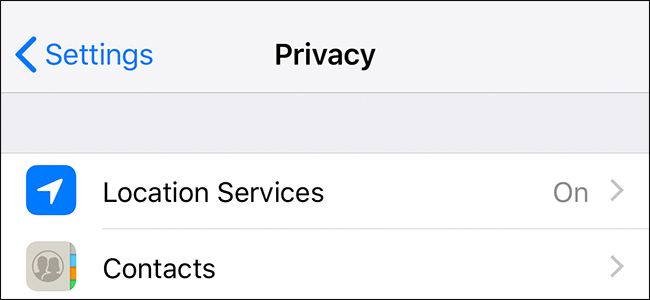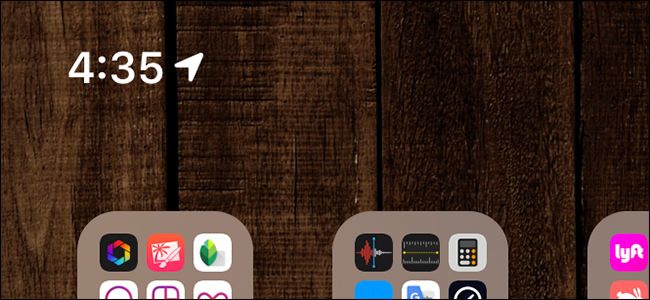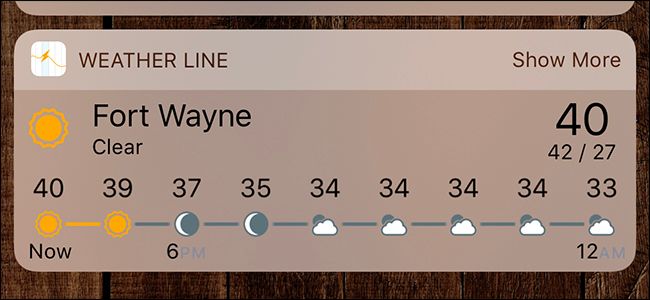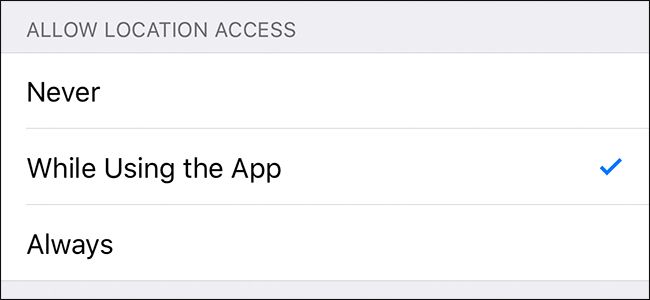Quick Links
When it comes to smartphone privacy concerns, location data is usually at the top of the list. The thing is, so many apps ask for your location now that we never really stop to think why they ask in the first place.
A bombshell report was recently published by The New York Times detailing just how much location data apps have on you (it's more than you might think), and how they use that data to make money from targeted advertisements. This concept is nothing new and is already widely known, but the report goes into much greater detail than what we've seen before.
But before you hectically jump into your phone's settings and turn off location data for every single app, you should know which apps need location services enabled and which ones don't. And more importantly, you should know why some apps need it in the first place.
Why Apps Ask For Your Location
Depending on the app, there are all sorts of reasons as to why they ask for your location. Some apps need your location to function properly, some enhance the app in convenient ways, and others don't need your location at all.
Rather than go through every single app in existence and tell you why they might want your location, here's a general breakdown of various app categories, starting with the more obvious ones:
- Weather: With your location, weather apps can accurately give you the forecast for your area, especially "hyperlocal" weather apps like Dark Sky.
- Maps & Travel: Navigation apps require your location for turn-by-turn directions, and most travel apps use your location to help you find cool places nearby. Plus, ride-sharing apps (like Uber and Lyft) use your location, so drivers know where to pick you up.
- Health & Fitness: Running and other exercising apps use your location to track your runs, including distance and time.
- Social: Social media apps ask for your location if you want to "check in" or tag yourself at a cool place.
- Smarthome: Your location is used for geofencing so that devices in your house automatically turn on and off when you leave or get home.
- Shopping: A lot of retail store apps will ask for your location for simple things, like easily finding a location nearest you.
- Camera: Interestingly enough, camera apps can use your location data too, mostly to insert the location into the EXIF data in photos.
- Games: Very few games will require your location, but some (like Pokemon Go) rely heavily on it.
- Streaming: Most live streaming television apps will need your location to confirm regional blackouts and certain features, especially for sports streaming apps.
Which Apps Need Your Location, and Which Ones Don't?
So now that you mostly know why apps ask for your location, it's time to get to the meat of the matter and ask ourselves which apps need our locations and which ones don't.
Technically, very few apps need your location. Most of the time it's just an added convenience, and it bypasses a manual step that you would have to take otherwise.
For example, you could manually enter your zip code for a lot of different apps that normally would use your phone's GPS (like weather apps and shopping apps). Sure, it's a bit more inconvenient, but you wouldn't be handing over your exact pinpointed location every time. But most of the time, it's easier and faster to have the app figure out our location for us, and that's okay.
Some apps, though, are completely useless without enabling location services, navigation apps being the biggest ones. Without knowing your exact location, Google Maps would have no idea when to tell you to turn left onto that street coming up in 300 feet.
Running and cycling apps are another example. You don't technically need to give your location to these apps, but without doing so, you wouldn't be able to track your outdoor runs. At that point, the app would be kind of useless.
For those apps where you can't disable location services entirely, you can least adjust the settings (as detailed here) so that the app only collects your location data when you have the app open and running. This will at least somewhat limit how much location data is collected from these apps.
Even With Location Services Disabled, You're Not Completely In the Clear
Unfortunately, just because you have location turned off in a lot of your apps doesn't mean that there's no other way to get your location.
For starters, just being connected to the Internet can give away your approximate location. Services can use your IP address to get your location down to your zip code. It's not as accurate as the GPS on your phone, of course, but it's something.
And as mentioned above, even if you don't have location services enabled in your weather app, you still have to enter a city or a zip code to get the forecast. So while apps may not necessarily know your exact whereabouts, they at least still have a good idea of what city you live in and areas that you might visit regularly.
Plus, it's not uncommon for apps and services to continue to track you, even after you turn off any location tracking settings.





